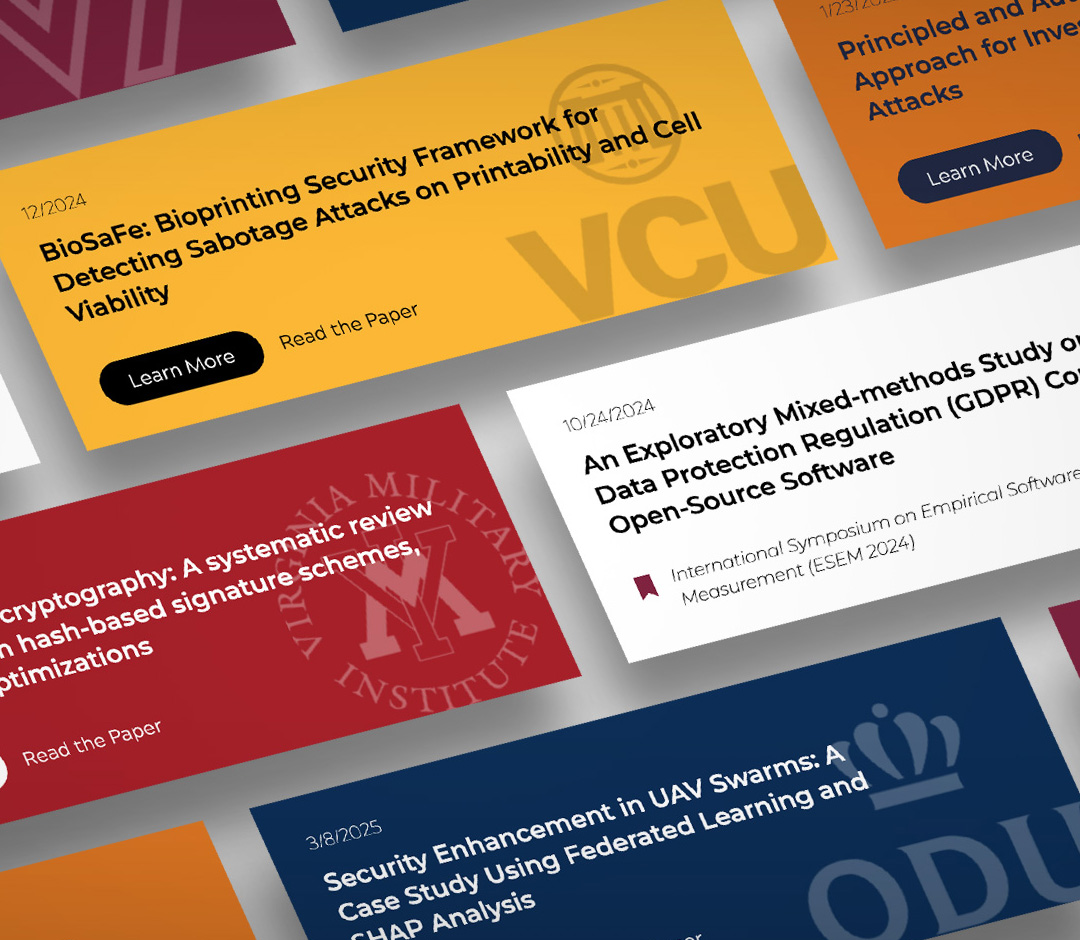Security Enhancement in UAV Swarms: A Case Study Using Federated Learning and SHAP Analysis
Research Paper Showcase 2025
Abstract
As cyber-physical systems (CPSs) increasingly integrate physical and digital realms, securing critical infrastructure, such as the Port of Virginia, becomes paramount. Among CPSs, Autonomous Aerial Vehicles (AAVs) are vital for monitoring, communication, and supporting the command and control through remote reconnaissance and surveillance missions.
These AAV applications often require coordination, planning, and runtime reconfiguration, traditionally managed by human decision-makers. However, this approach has limitations, as extensively documented in the literature. Artificial Intelligence (AI) has emerged as a pivotal tool to address these limitations, enhancing risk mitigation and informed decision making.
This research proposes a machine learning (ML) based security mechanism, leveraging federated learning and FedAvg for weight averaging, combined with SHAP analysis to identify key contributing features. This AI-based system requires less human intervention and is more effective in detecting novel attacks than traditional intrusion detection systems (IDS). Using the IEEE DataPort AAV Attack Dataset, this study aims to develop a robust distributed ML security solution for AAV swarms, significantly advancing the cybersecurity landscape for CPSs.
Authors
- Sushmitha Halli Sudhakara, Old Dominion University
- Lida Haghnegahdar, Old Dominion University
Publication
- Venue: IEEE Open Journal of Intelligent Transportation Systems
- Date: 3/8/2025



